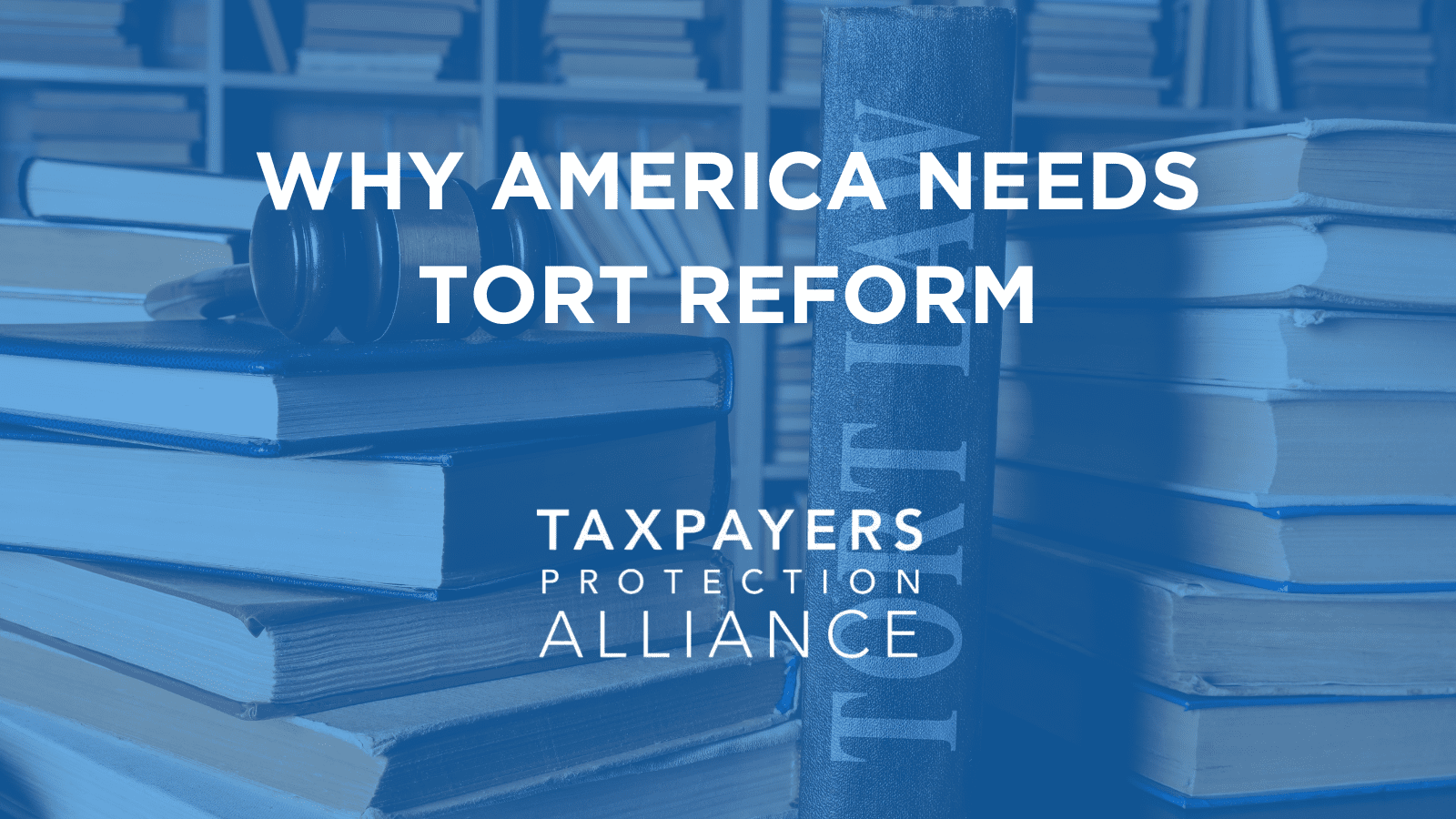
Why America Needs Tort Reform
Taxpayers Protection Alliance
July 25, 2025
Tort litigation costs have skyrocketed in recent years. Rather than being the product of rising rates of business malpractice, these problems are the product of perverse legal incentives. The purpose of tort litigation is to provide a defense mechanism for individuals who have been harmed by the wrongful actions of others. Properly applied, it allows wronged parties to seek compensation and upholds accountability and justice. Unfortunately, due to permissive laws that empower trial lawyers and frivolous lawsuits, tort litigation has mutated into a weapon of aggression that imposes staggering economic costs.
The U.S Chamber of Commerce’s Institute for Legal Reform reports that costs and compensation in the U.S. tort system totaled $529 billion in 2022. In other words, the cost of tort litigation accounted for 2.1 percent of U.S GDP, or $4,207 per household. Rising costs are the product of one-sided policies which unfairly benefit plaintiffs and incentivize unwarranted litigation. If lawmakers fail to realign incentives, costs associated with tort litigation are predicted to exceed $900 billion by 2030.
Excessive litigation increases costs for companies and ultimately harms the communities in which they do business. The proliferation of dramatic verdicts and huge punitive damages force businesses to divert resources towards defensive measures rather than focusing on investment and innovation. These increased costs are then transferred to consumers. For example, the American Tort Reform Association estimates that Georgia residents pay a “tort tax” of more than $1,200 per year to compensate for increased business costs and 123,900 jobs lost annually. To make matters worse, some business owners refuse to conduct business in high payout districts at all. An article from the U.S Chamber of Commerce notes that legal risks made it impracticable for a grocery store owner to open new locations in underserved areas of Georgia.
In response, several states have enacted reforms that seek to discourage frivolous litigation and restore the proper role of tort cases in the legal system. Measures include legislation that would increase accountability, prevent arbitrary anchoring, and streamline trial procedures. For example, in auto-related cases, legislators have established rules allowing defendants to present evidence informing the jury if the plaintiff was not wearing a seatbelt during an auto accident. Other laws ban third-party litigation funding and restrict businesses’ liability to factors within their control. These reform efforts seek to redirect incentives are a win for businesses and communities.
Policymakers should recognize the burden excessive tort litigation places on commerce and take steps towards reform. The justice system is intended to pursue, well, justice — not to facilitate unscrupulous lawyers’ get-rich-quick schemes.
